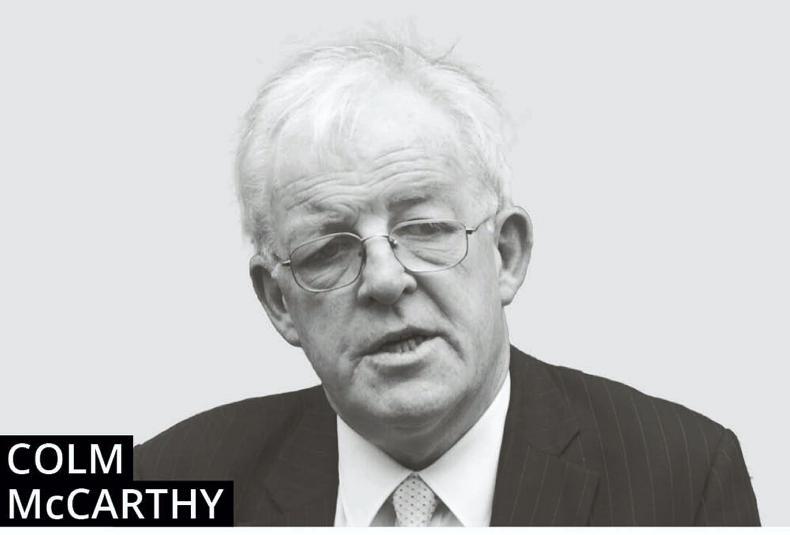The Conference of the Parties which is just concluding in Baku, the capital of Azerbaijan, is called COP29, it being the 29th annual get-together of the signatories to the UN Framework Convention on Climate Change, adopted in 1992 after the Rio de Janeiro Earth Summit.
COP1 was held in Berlin in 1995 and cities all over the world have hosted the annual event in the intervening period. COP30 is scheduled for the Brazilian city of Belem a year from now. When the 2021 renewal, COP27, last visited western Europe, the venue was Glasgow, and the city by the Clyde could expect to be honoured again at some stage within the next few centuries, perhaps COP400 or thereabouts.
These jamborees have become an annual reminder that the United Nations is an ineffective instrument in the pursuit of a workable climate policy.
In the early 1990s, the majority scientific conclusion was that climate change needed to be addressed urgently and the United Nations was the chosen vehicle, the nearest thing there is to a world government. That fundamental conclusion of climate science has not been modified despite the enormous advances in emission monitoring and measurement in the three decades since.
On all available evidence, emissions continue to exceed safe limits and the COP29 deliberations have been greeted with extreme scepticism.
There were 20,000 delegates in Baku, mainly representing UN member governments and various environmental NGOs all funded by taxpayers, with a sprinkling of fossil fuel executives who are hopefully paying their own bills.
Futile exercise
Flying 20,000 people to remote Baku will have made a non-trivial contribution to carbon emissions all on its own. To add colour to the perception that Baku is another futile exercise, critics have been quick to point out that Azerbaijan is not merely a large-scale oil and gas producer but also one of the most corrupt countries in the world.
Out of 180 countries ranked for corruption by Transparency International last year, Azerbaijan was down in 154th place, behind Russia. The president, Ilham Aliyev, has held the post since 2003, succeeding his father Heydar, a former communist party official who was president from 1993 following a career in the KGB. His daughter Leyla is reputed the richest woman in the country and is tipped to succeed Ilham – in free and fair elections, of course.
Ilhan, the current Aliyev incumbent, who presided over COP29 and lectured delegates about their planetary responsibilities, won the 2012 award as Corruption’s Person of the Year from the Organised Crime and Corruption reporting project.
The source of the climate crisis has been well understood for at least three decades. Net emissions need to be reduced and ultimately contained within much lower worldwide limits. Since supply equals demand for the planet, which shares a common atmosphere, there is much to be said for the limitation of demand for carbon-emitting products and services internationally, the solution recommended by economists from the earliest COP meetings.
With sufficient taxes and charges on the demand side, supply would adjust downwards as low-carbon technologies emerge, responding to the economic incentives created by policy.
A different path has been chosen. Outside Europe, most countries do not impose significant taxes and charges on the consumption of carbon-intensive products and services.
The European Union has been largely successful in persuading member states to charge more realistic figures
One of the background issues in the recent US elections was the high level of petrol prices at filling stations, with voters expressing concern that they could no longer afford to fill the tank due to what they call ‘gas’ prices. The current retail price in the US is about US83c/litre, versus twice that figure in most EU countries and around US$1.85 in Ireland. In Italy, the figure is over US$2/litre, while Saudi Arabia is at US62c/litre and China at US84c/litre (prices in euro instead?)?.
The European Union has been largely successful in persuading member states to charge more realistic figures, as has a former member, the United Kingdom. If the United Nations through the COP process has failed, an alternative architecture is available.
The G7, following the expulsion of Russia, has the world’s major economies in membership, including the US, Canada, Japan and the large European countries. Add in China and the group would include over half of the world’s demand for carbon-intensive products and services. This grouping moreover would wield enough trading muscle to bring the others that matter into line.
It would be no simple matter to secure agreement on minimum fuel taxes at European levels with the US and China, or an end to the complete exemption of jet kerosene in all countries. But it is difficult to see a practical way forward without it. There has to be something better than the annual Flight of the Bureaucrats to these annual COP gabfests.






 This is a subscriber-only article
This is a subscriber-only article









SHARING OPTIONS: